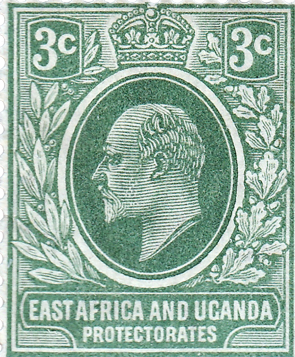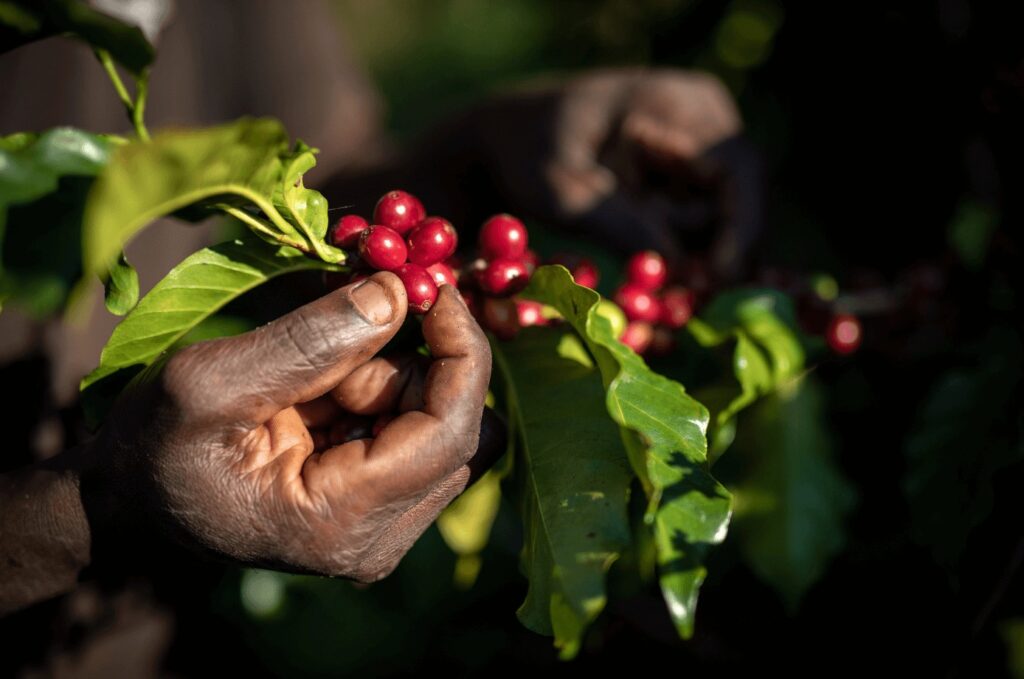The best coffee comes from the best coffee beans, which require the best coffee growing conditions.
About Us

Our History
Arabica Coffee was introduced to Bugisu in Uganda by the then British Colonial Government in 1912. Rev. John Roscoe, a British priest, started the coffee growing practice in Bumudu/Buwalasi Sub-county in Budadiri County.
The first coffee nursery bed was established at Masekele in Bukiyiti Parish in 1915. Bukiyiti was the then seat of the North Bugisu county administration.
Between 1915 and 1931, Arabica Coffee was marketed by private traders, whose limited knowledge of the coffee drying, grading and storage process led to poor quality coffee and equitably low prices on the world market. The low prices contributed to formation of the Bugisu Coffee Scheme in 1931 to ensure high quality coffee by buying directly Bugisu farmers who processed and stored their coffee appropriately.
In 1929, the Bugisu Coffee Scheme sold its coffee to the Bugisu Coffee Marketing Co. which then exported it. In 1933, the Bugisu Coffee Board was set up to ensure that Bugisu coffee growers could own and operate their own entity. This Board built a healthy financial position for the scheme and fostered the growth of cooperatives in Uganda.
The Co-operative Societies Ordinance was enacted in 1946, leading to the recognition of cooperatives that had been established around the Bugisu Coffee Scheme. By 1951, Bugisu Coffee farmers had gained more representation on the Bugisu Coffee Board with three quarters of coffee growers as board members and with the Board taking over all Bugisu Coffee Scheme activities.
In 1952, four unions were formed and based at the coffee drying centers in Buyaga & Nampanga in Budadiri County, Busamaga in Bungokho County and Bubulo in Bubulo County
By 1952, Bugisu’s Arabica coffee was in high demand on the world market, allowing the Bugisu Coffee Board to hold up to one million pound sterling in trust for their coffee growers. In July 1954, the four local unions in Buyaga, Nampanga, Busamaga, and Bubulo formed one central union, as the Bugisu Co-operative Union Limited,
A Bugisu Coffee Ordinance was enacted in 1955, providing for BCU to cover all marketing functions from Bugisu Coffee Scheme, plus all assets except the
reserve funds, still held by the Board.
BCU is owned by 291 Member Coffee Farmers who are organized in Primary Growers Cooperative Societies. Each Primary Society keeps a register of its fully paid-up members who elect a committee, which manages society’s affairs. Each primary Society is represented by two delegates at the BCU Annual General Meeting (AGM). In addition to other functions the BCU Annual General Meeting
(AGM) which elects 9 Board members who in turn appoint and supervise the management team. BCU also operates according to National and International Cooperative Principles.

FARMING METHODS

The Arabica coffee in Bugisu is grown in volcanic soils at an altitude of between 3800ft and 14,700ft above sea level. The roasted Arabica Coffee beans have a mild sweet aroma and good taste. Chocolate has also been reported. The farmers grow their coffee on their own small gardens. Coffee is mostly grown organically.
Processing: Primary processing involves the pulping of ripe red coffee cherries, and fermenting. The coffee is then washed in clean water and dried on mesh. The mesh is placed two meters above the ground to avoid contamination. Bugisu Cooperative Union owns Central Pulperies where coffee berries are pulped on a large scale & dried under controlled temperatures. After the coffee is dry, farmers sell it to the primary society, which in turn delivers it to the BCU Mill. At the BCU factory, coffee is inspected, tasted for moisture content and weighed before it is stored in the silos.
Production Capacity
The Bugisu Cooperative Union Limited factory is ultra-modern, fitted with color sorter machines and gravity table. The mill has a capacity to produce 40 tons of green beans in 8 hours. BCU roasts, grinds and packs ground coffee powder under the Elgon Pride brand for local markets and international markets.
Export Process

Status of the Beans: The green coffee beans are always between 10.5% moisture content as sound bean with defect count of less than 5%.
Packing: The Green Beans are packed in Jute Gunny Bags of 60kgs (Net Weight) and each gunny bag weighs 900gms (0.9kgs)
Shipment Quantities: We use 20ft export containers which carry 320 bags each. We can provide savings on volume once you’re ready to agree on the grades i.e., AA, A, AB and PB.
Quality Description:
Our Grades are AA for Screen 17, A for Screen 16 and AB for Screen 15. We leverage Buhler and Cimbria grading machines while sorting is by gravity table and color sorter.
Purchase Contracts:
We enter into agreements with the end-user or buyer.
Pricing:
World & Financial market prices
Payment Terms:
Ex Ware House Mbale, FOT Mbale by T.T
Export Documents:
Bugisu Cooperative Union Ltd processes all shipment documents for your coffee:
– The ICO Certificate
– Phytosanitary Certificate
– Weight Notes & Tally Sheets
– Loading Orders & Packing list
– Fumigation Certificate
Shipping:
Done by the buyer
Value Addition:
We roast green beans and grind coffee powder for sale and pack them in 100 gms – 500gms.
CONTACT US
BCU Ltd, is situated on Plot 46 Pallisa Road in Mbale Town in
Bugisu Sub-region in Eastern Uganda, East Africa. It is 256 kilometers (160 miles)
from Kampala, the capital city. Bugisu is found on the slopes of Mt. Elgon.